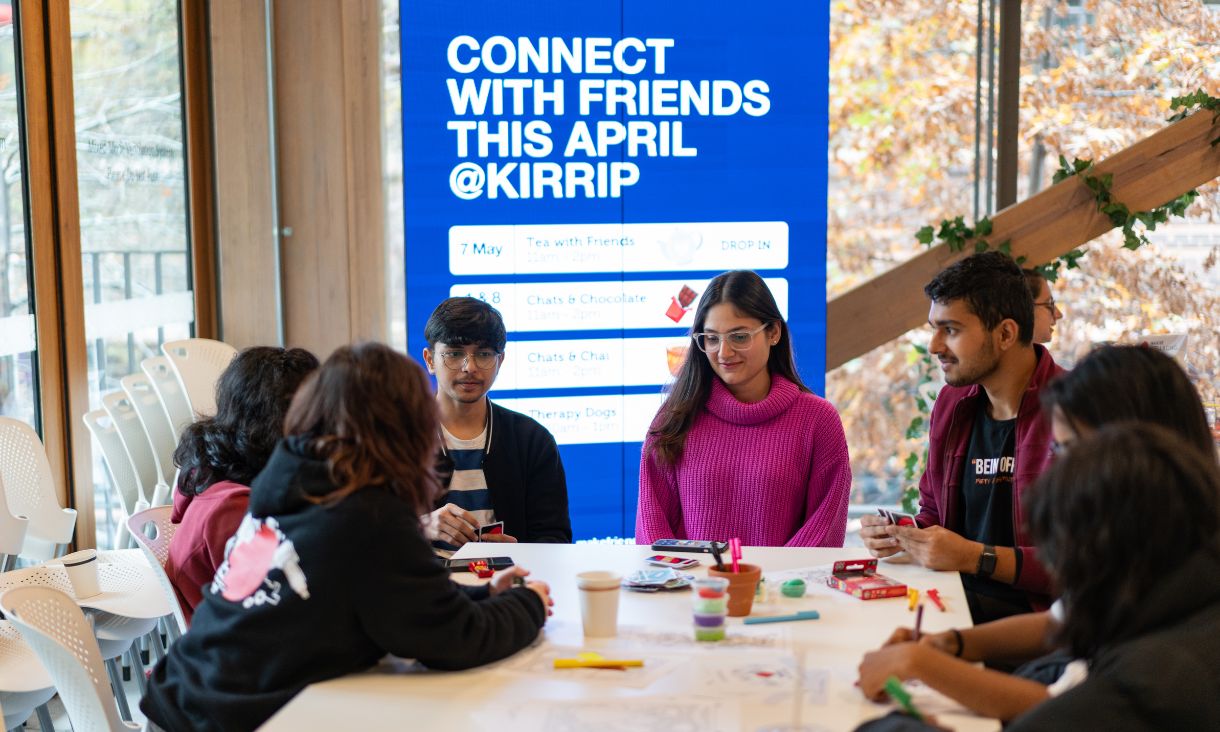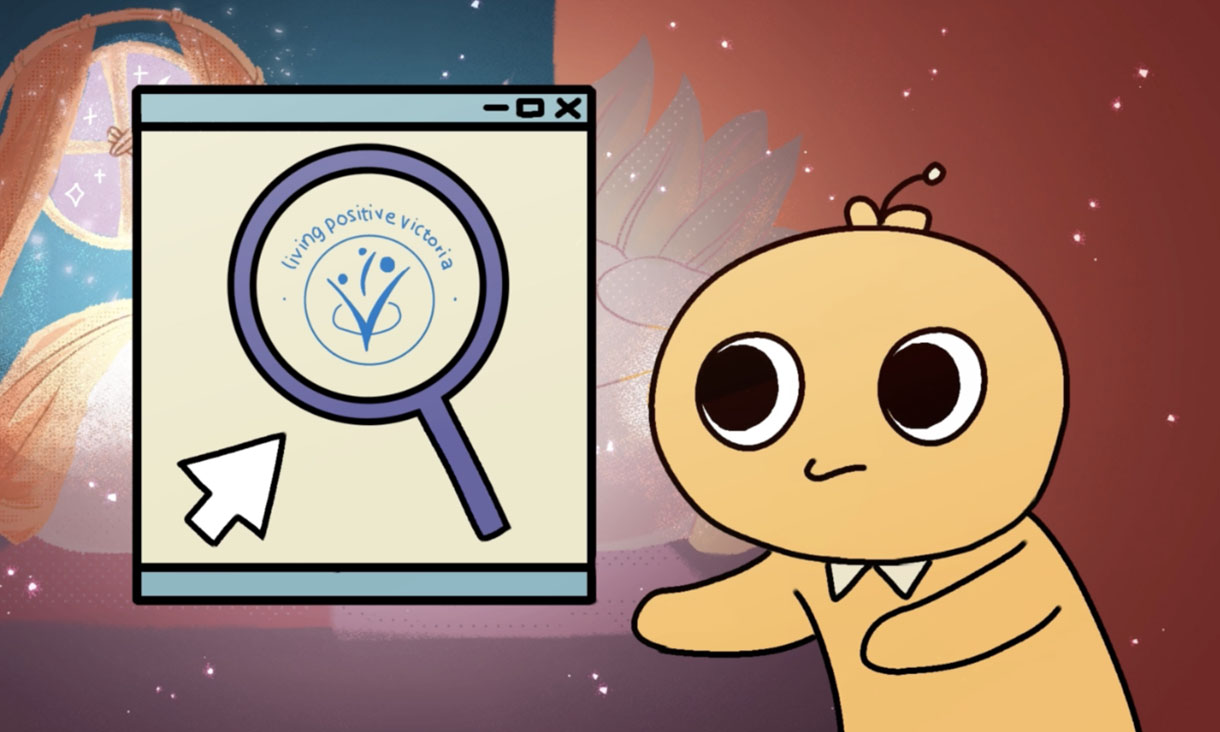



The students were tasked with producing a suite of short, animated videos that told a contemporary story of HIV treatment and care.
The aim of the project was to help students develop their animation skillsets, while continuing to expand their expertise as artists, storytellers, and collaborators.
“Our 2d animation followed our character throughout their day, trying to continue as they normally would but persistently being interrupted by a little round red figure!” explained Rebecca Furnari, a student who participated in the project.
“The red character is a personified HIV cell, throughout the animation it becomes bigger and more noticeable, but with the proper prep pills, our main character is able to control their HIV Cell.”
The opportunity to work with a real-world client in Living Positive Victoria presented invaluable opportunity for students to practise and apply their course learnings in pitching, verbal, and written communication, and applying feedback to best meet client needs.
 Short, animated videos created by RMIT students help tell the story of HIV treatment and care.
Short, animated videos created by RMIT students help tell the story of HIV treatment and care.
Students were able to tell stories about real people and the challenges and stigma many of these people have faced in their lives.
“As a course, RMIT Bachelor of Animation is focused on creating collaborative opportunities with outside organisations to create a real world, client focussed briefs,” said Laura Eldar, one of the lecturers for the course.
“My colleague knew someone involved with Living Positive who was looking for more support in the campaigns mentioned, we made a time to chat, and the rest is history.”
Laura explained the brief was designed to build a range of core and softer skills in the participating students.
"The hard skills we look to build are software competency, storyboards, animatics, animation, colour and written scripts, sound design, character and environment design, direction, production, file sharing, basically anything technical they can use to build their folio for future employment,” she said.
“Soft skills we aim to build are collaborating both in student groups and with a client, which involves constant communication and working together, as well as being able to take and give feedback to one another."
"There’s a lot to cover and our students wear a lot of hats.”
Rebecca explained her project aimed to express the characterisation of living positively with a series of metaphors.
One thing the audience could look out for is not just seeing the figure as a personified HIV cell, but also as the people who negatively judge people with HIV, before even knowing the proper facts about the illness.
She said the project had changed her understanding of HIV and the effect it has on a person and the world around them.
“I’m grateful to have all this knowledge now, and everyone should understand this illness, even if they don’t live with the it,” she said.
"I was also glad to learn that people who take PREP Pills daily are living positively."
“It was definitely refreshing to discuss this topic – with its heavy stigma – so openly, and to be surrounded by open-minded people.”
Laura said the quality that stood out amongst the student responses to the complex and challenging brief was their ability to make the topic relatable to a wider audience.
“Our students’ ability to take what is a heavily stigmatised subject matter and turn it into outcomes that are emotional, humorous, as well as being scientifically informative, was really inspiring,” she said.
“They really nailed the public messaging aspect of the brief – you could show these to anyone, and they’d understand what was being discussed."
"I do think that over the course of the project they learned how to effectively communicate the subject manner in a non-stigmatising manner.”




The Apple Foundation Program at RMIT is a fully subsidised program that offers an overview of the skills to become an iOS developer while introducing you to a highly sought-after transferable skill set.
RMIT has reached a significant point of reflection in our work to prevent and respond to gender-based violence at RMIT, with the release of our Addressing Gender-Based Violence Annual Report 2024.
Investigating the sustainability of modern construction practices by focusing on prefabricated construction.
Mustafijur Rahman's PhD journey at RMIT within the School of Fashion and Textiles highlights the power of interdisciplinary research in driving innovation to tackle healthcare challenges.


RMIT University acknowledges the people of the Woi wurrung and Boon wurrung language groups of the eastern Kulin Nation on whose unceded lands we conduct the business of the University. RMIT University respectfully acknowledges their Ancestors and Elders, past and present. RMIT also acknowledges the Traditional Custodians and their Ancestors of the lands and waters across Australia where we conduct our business - Artwork 'Sentient' by Hollie Johnson, Gunaikurnai and Monero Ngarigo.
More information